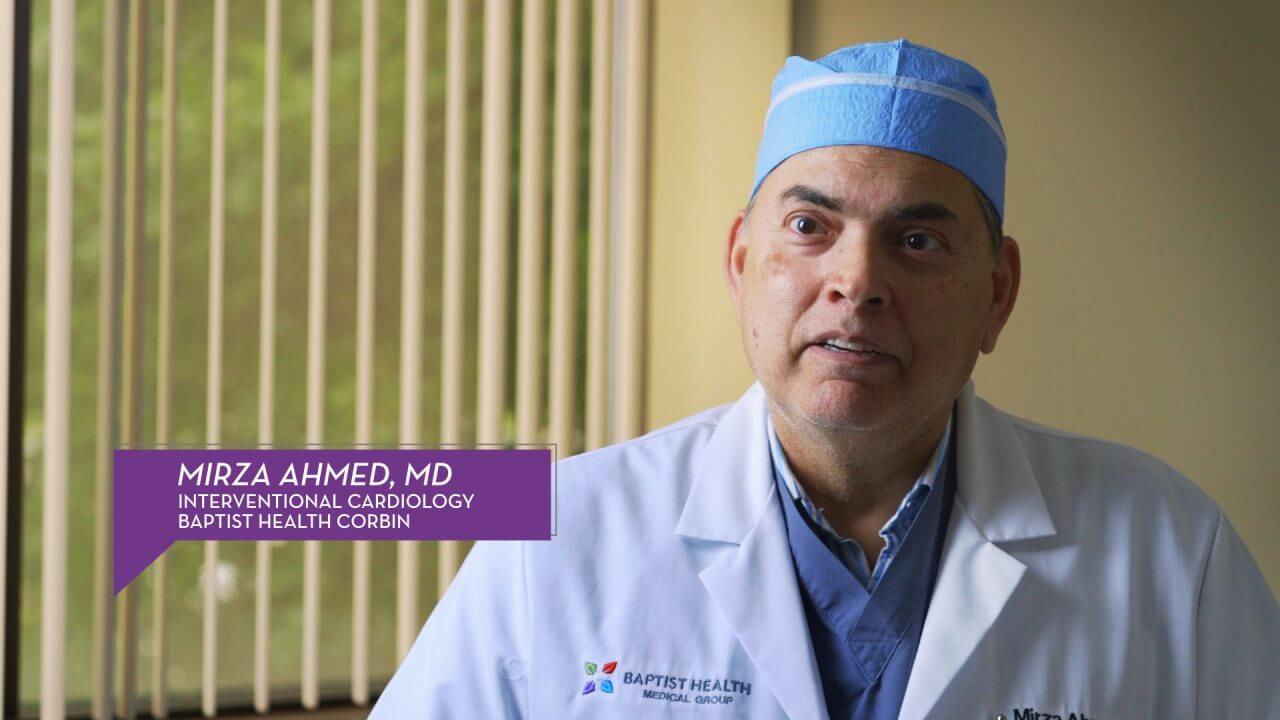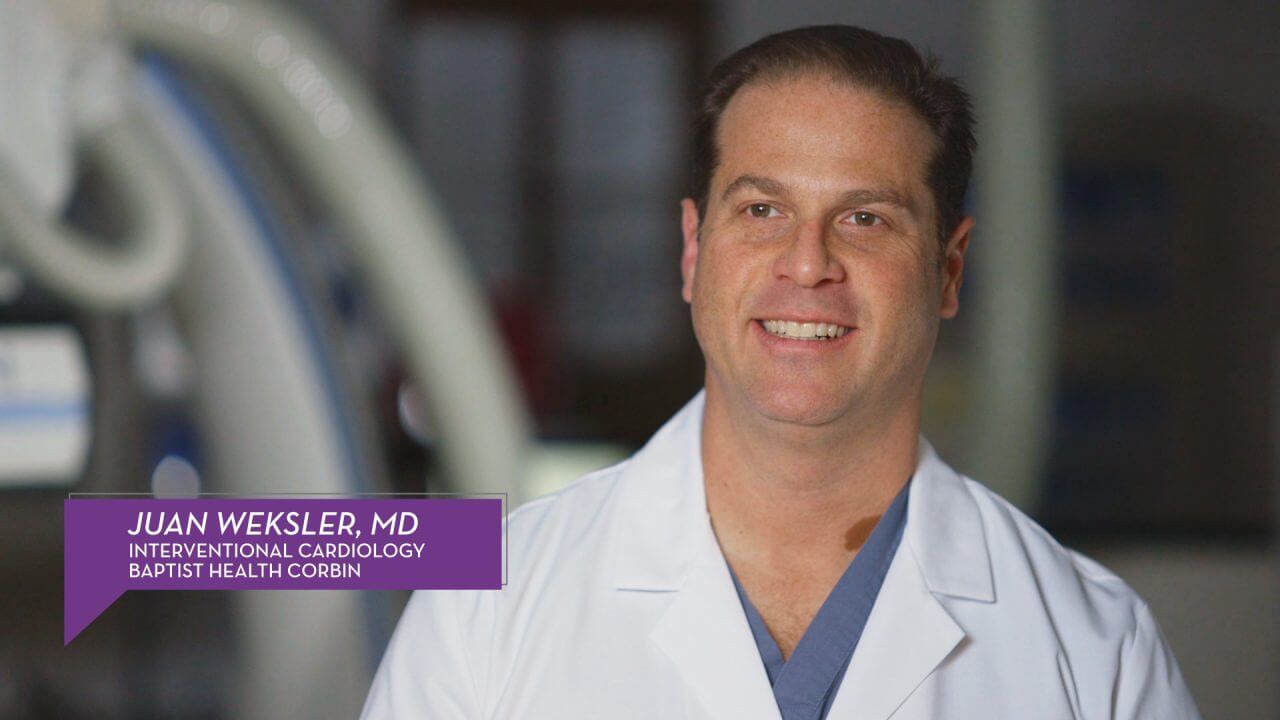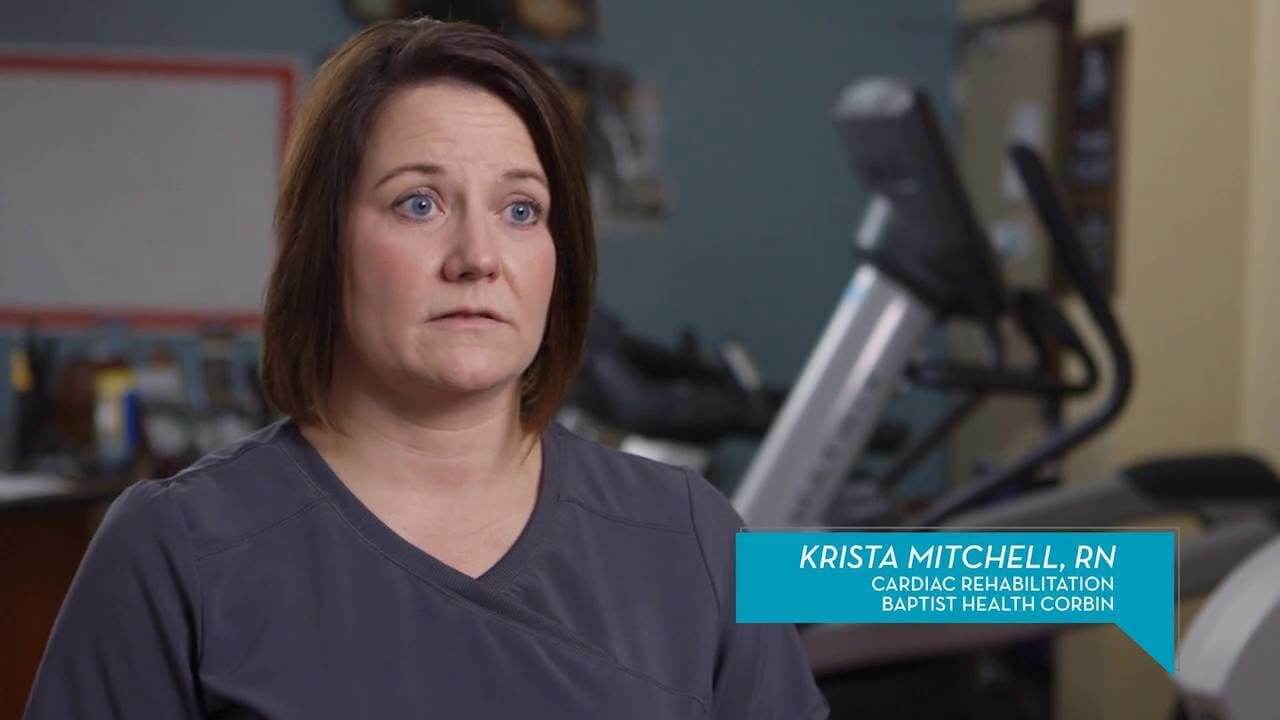Percutaneous Coronary Intervention
Baptist Health Corbin: Percutaneous Coronary Intervention
Percutaneous coronary intervention is a minimally invasive procedure that uses a stent to help open clogged arteries. Learn more about PCI at Baptist Health.
Percutaneous Coronary Intervention (PCI) in Corbin, KY, HealthTalks Transcript
Prem Subramaniyam, MD:
PCI means percutaneous coronary intervention. It is a procedure where we identify and open blockages in arteries that supply [the] heart muscle. It is a minimally invasive procedure. There is no major surgery involved. There is no major blood loss involved.
We don’t open up the chest wall to gain access to the heart. We access the peripheral arteries, commonly in the wrist or in the groin, and we reach all the way up to the heart arteries and inject contrast and identify blockages. Once we identify blockages, we use balloons and stents to clear up the blockages and open up the artery. Once the stent is at the site of the blockage, the artery usually stays open for a longer period of time.
Most of my patients can go home the same day after they [have] had stents. Usually, when patients present with a major heart attack, we have them stay overnight to monitor their other heart functions, including their heart pumping function. The recovery time usually lasts for a day or two.
Baptist Health Corbin has been an accredited chest pain center for many years now. This past year we achieved platinum status for performance quality achievement by the American College of Cardiology. The platinum status award is given to hospitals who perform at the highest percentile ranking. We are extremely proud that our team has been able to provide [highly advanced] care in a timely fashion for people and make a difference in their lives.
Next Steps and Useful Resources
Find a Provider
Recovery After a Heart Attack
Coronary Artery Disease in Women



